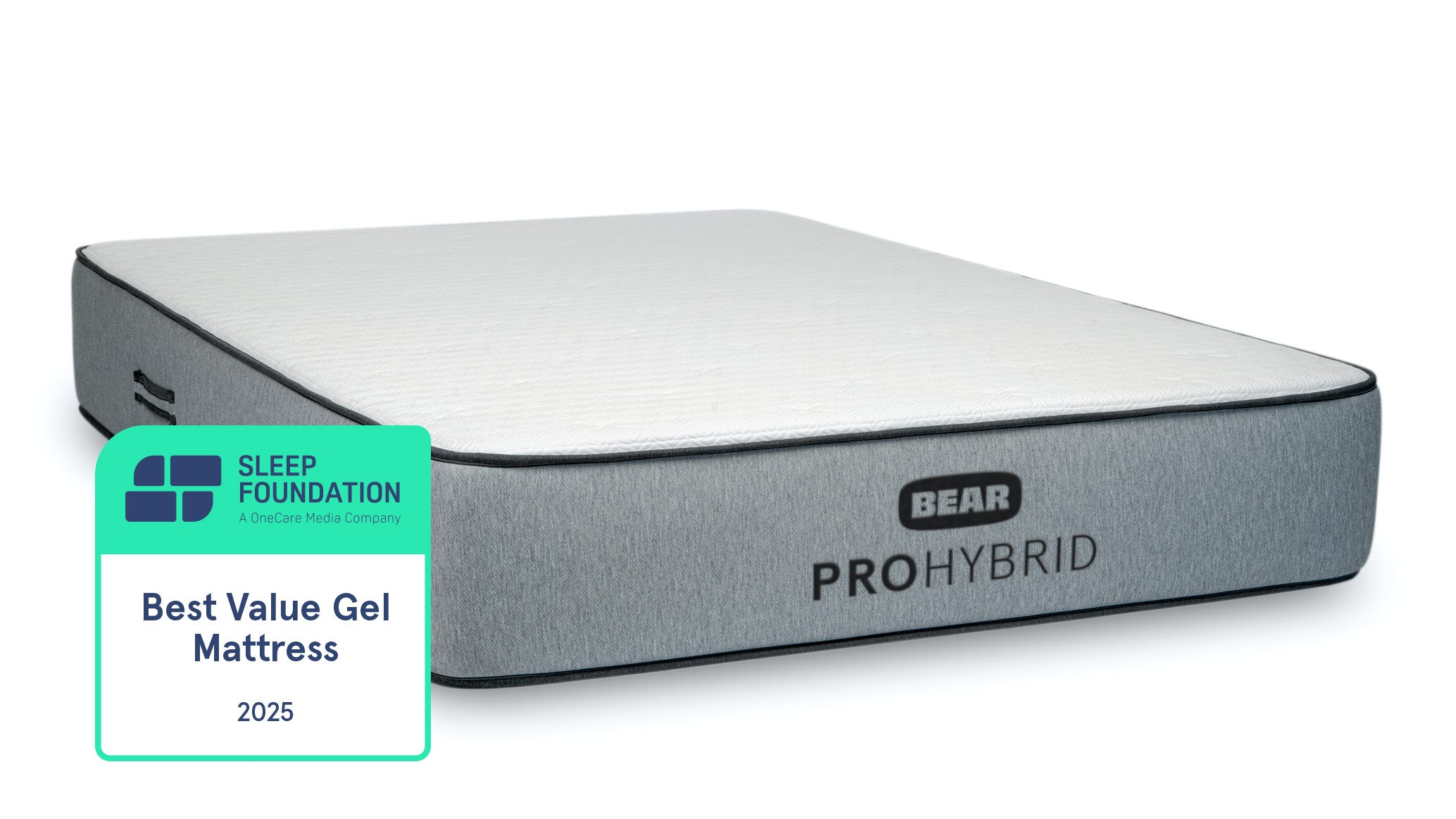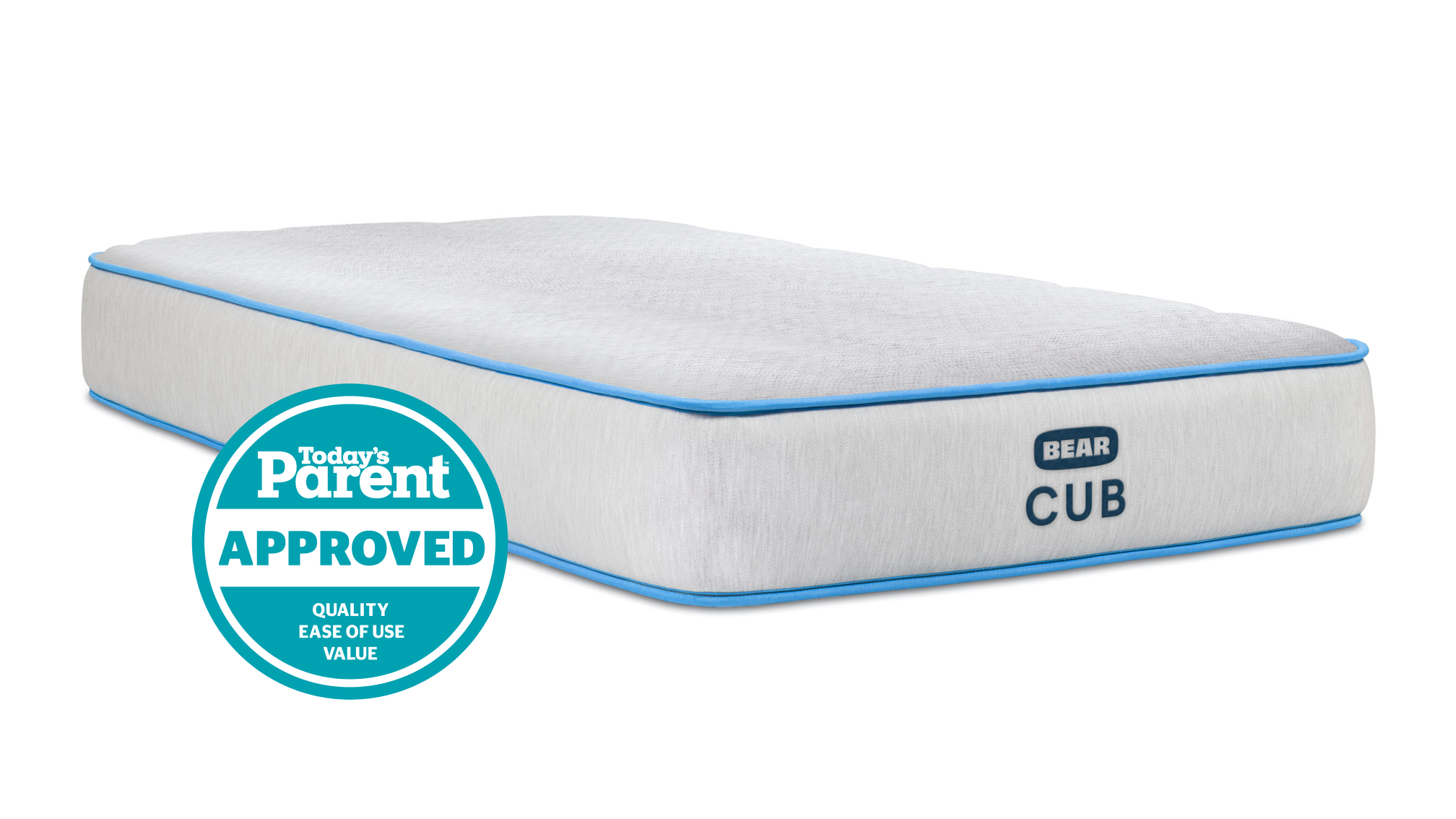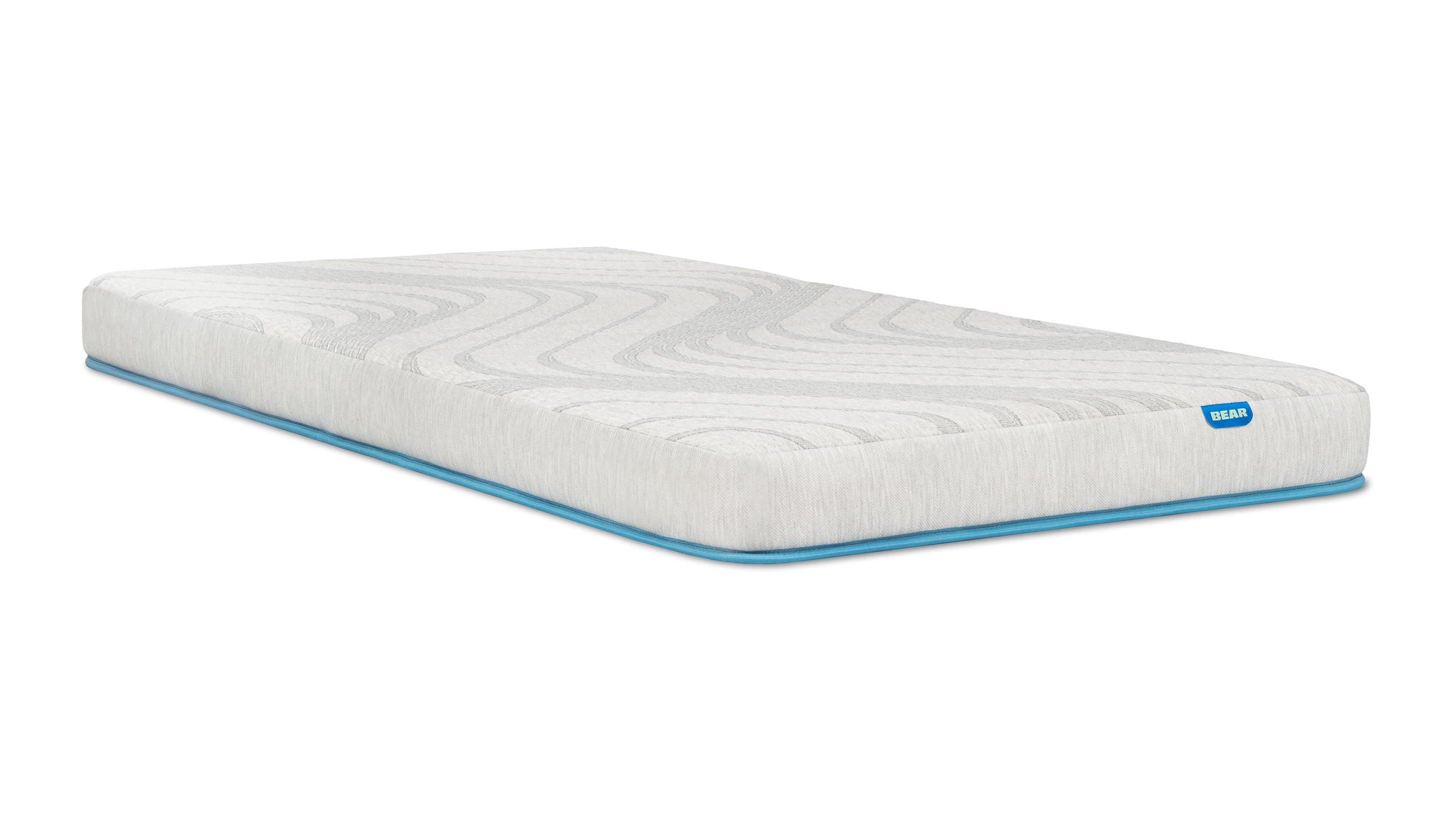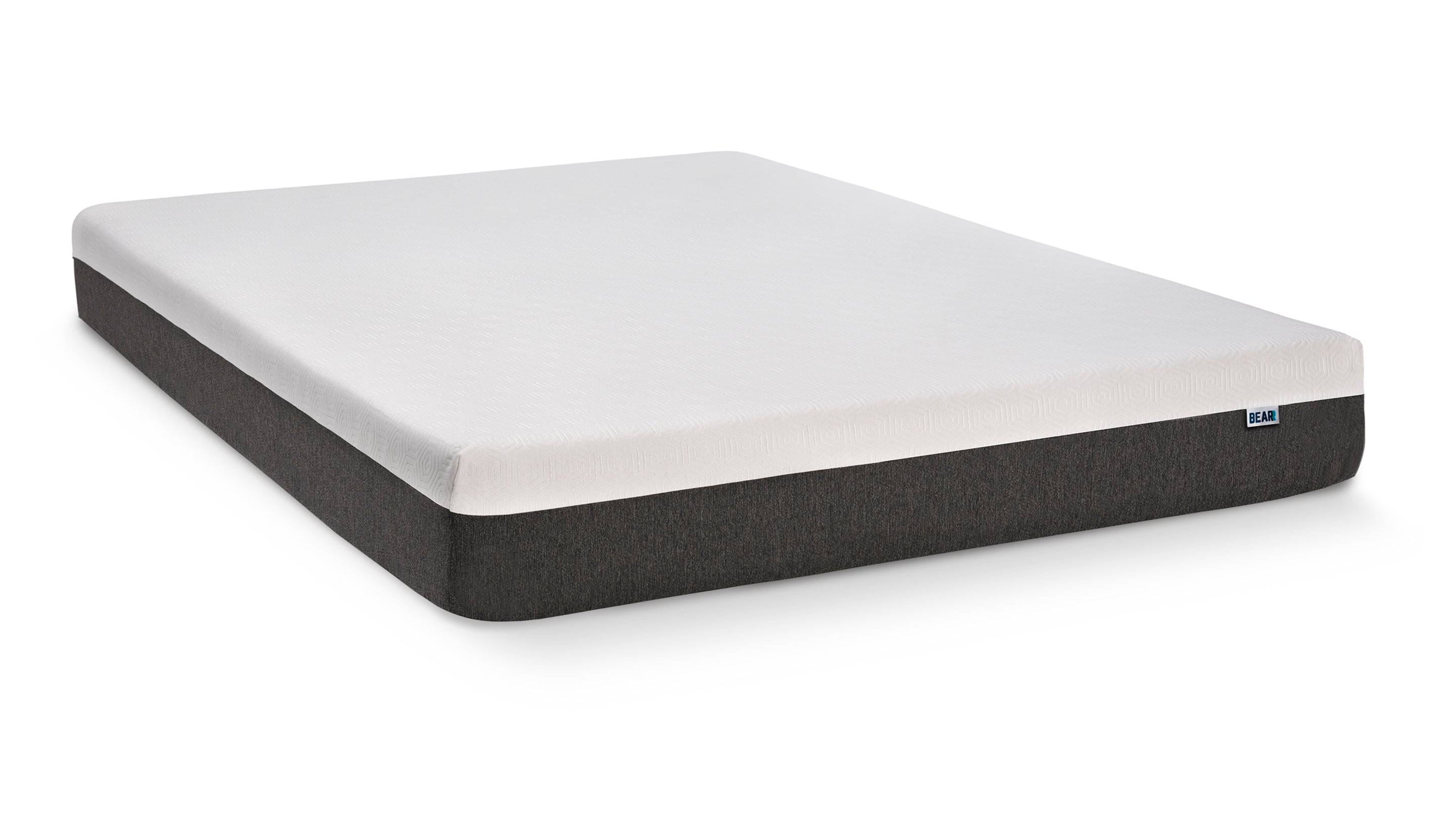Most of us have a pretty good idea of how many hours of sleep we need each night. But how many of us know the average number of sleep cycles we need each night?
Probably not many.
After all, most of our sleep education has been centered around hours — infants need 14–17 hours, kids need 10–13 hours, teens need 8–10 and adults need 7–9. But, those hours won’t mean much if your sleep stages and sleep cycles are out of whack.
What Are the Different Sleep Stages?
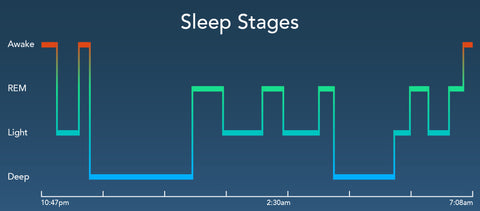
First things first, we need to talk about REM sleep and Non-REM sleep.
During REM sleep, your brain is active but your body is paralyzed, and your eyes randomly dart around underneath your lids (as you may know, “REM” stands for “rapid eye movement”).
Non-REM sleep, however, is almost the exact opposite: your brain is relatively inactive, but your body is still moveable to a certain degree depending on whichever sleep stage you’re in. It’s during non-REM sleep that you’re more likely to get woken up.
So how do REM and non-REM sleep relate to our sleep stages?
According to the American Association for Sleep Medicine, there are five stages of sleep, with the first four falling under the non-REM sleep category:
1. Stage W: Wakefulness
You can sort of think of the wakefulness stage as “Stage 0” because, well, you’re awake! It may not seem important for our purposes, but in fact, wakefulness and sleep are intertwined — when you're awake, your brain and body use up energy and other resources that are then replenished during sleep.
2. Stage N1: Relaxed Wakefulness
This next stage is the transition period between being awake and being asleep, and it usually doesn’t last more than 10 minutes. It’s during this stage that you’re most likely to get woken up since you’re still semi-aware of your surroundings.
What other changes occur in this stage? Well, your core body temperature will begin to drop, your eyes might move slowly and you may notice your thoughts becoming a bit illogical. Also, you might get hypnic jerks as you doze off — those sudden, sharp muscle twitches that wake you up for just a moment.
3. Stage N2: Light Sleep
Think of Stage N2 as the beginnings of rest and regeneration. Your blood pressure and heart rate decrease, the muscles in your airway relax and change your breathing, you don’t experience any eye movements and you may have fragmented dreams or brief arousals from sleep.
This stage also takes up the majority (about 45%–50%) of our sleep time.
4. Stage N3: Deep Sleep
Deep sleep is the most restorative stage out of the five. During this stage, your heart rate and blood pressure continue to decrease, and your body releases human growth hormone to rejuvenate and repair the cells throughout your body — like in your muscles, brain, immune system, etc. If awoken during this stage, you’ll feel groggy and perhaps a bit disoriented.
Much less is known about deep sleep compared to REM sleep, but it is believed to play an important role in long-term memory and waste removal from the brain.
Also, we should note that adults spend less time in this stage (around 5%–15% of total sleep time) than children and adolescents do.
5. Stage R: REM Sleep
The final sleep stage, REM, is perhaps the most well-known. As mentioned, your mind is active but your body is immovable during REM sleep, so you’ll likely have your most vivid dreams at this stage. Your heart and respiration rates will also increase, and (of course) you’ll have those rapid eye movements.
This stage happens later at night — so you may even skip the REM stage during your first sleep cycles of the night. In fact, the first time you experience REM sleep on any given night will likely be shorter than your REM sleep later on in the night, after you’ve gone through a couple of sleep cycles. Most people have a total of 90–120 minutes of REM sleep throughout the night.
Why is this stage important? REM sleep is linked to our ability to learn and solve problems, as well as memory consolidation and mental health.
Okay, So What are Sleep Cycles?
The progression through the various non-REM stages to the REM stage constitutes a sleep cycle. (Of course, you can think of wakefulness as the first stage of a sleep cycle. But, ideally, you will only be awake right before you fall asleep — not repeatedly throughout the night.)
On average, a single sleep cycle lasts about 90–120 minutes. So assuming you get eight hours of sleep, you could experience anywhere from four to five sleep cycles in a given night.
But here’s the catch: you won’t necessarily progress in order (N1 to N2 to N3 to REM) in a sleep cycle. Rather, the majority of people go from Stage N1 to N2 to N3 — then from Stage N3 back to N2 and, from there, perhaps back to Stage N1. At this point, you would likely experience REM sleep before starting the cycle over again at Stage N1.
However, REM sleep can actually happen at any time during a sleep cycle. And, you might not necessarily progress through the non-REM stages in a sequential order; they can intermix throughout a sleep cycle, and the order may change as the night progresses.
We know — it’s kind of complicated.
How to Use Sleep Cycles to Wake Up Refreshed and Energized
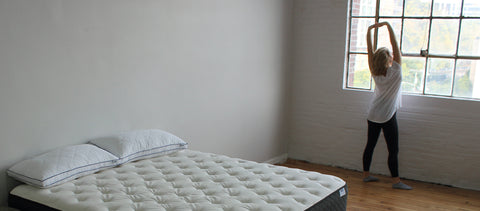
Well, as complex as sleep cycles are, you can still build your sleep habits around them so you wake up feeling recharged and refreshed more consistently.
The first step to mastering this is to recognize that our natural sleep patterns change with our circadian rhythm from infancy all the way through adulthood. For example, in adolescence (which begins around age 12), we start wanting to go to bed later at night, but we also tend to sleep in longer in the morning. However, as we progress into adulthood, we shift back toward going to bed a little earlier and not sleeping quite as long into the day. So, keep in mind that your sleep cycles may change as you age, and it’s important to be aware of these changes.
Now, ask yourself if you feel fresh and energetic during the day. If so, then congrats! Your current sleep patterns are doing the hard work for you.
But, if you’re groggy, lethargic or tired during the day, then your sleep patterns probably need a little TLC — and that’s where optimizing your sleep cycles comes in. So, here are a few ways to make that happen:
1. Determine How Many Sleep Cycles You Need
Knowing that the average initial sleep cycle lasts about 90 minutes, and every sleep cycle after that gets longer and longer, all the way up to 120 minutes, you can roughly calculate how much sleep you actually need to get the necessary 4–6 sleep cycles. Here’s an example:
Let’s say the average time of all your sleep cycles is 105 minutes, and you know you typically need to complete 5 sleep cycles each night to feel rested. That adds up to 525 minutes, or 8 hours and 45 minutes of sleep.
Here’s another way to look at it:
Perhaps you typically feel your absolute best after you’ve gotten 7 hours (420 minutes) of sleep. If the average length of all your sleep cycles is 105 minutes, then you know you feel the most rested after you’ve completed 4 full sleep cycles during the night.
Of course, it can take some trial and error to figure out how many sleep cycles you need to feel bright-eyed and bushy-tailed during the day. But, that’s where our next tip can be helpful…
2. Use Technology to Your Advantage
Nowadays, we can use everyday technology to track and optimize our sleep cycles. For example, there are smart alarm clock apps that wake you up during the light sleep stage, and wearable gadgets that can track your sleep stages and sleep cycles by monitoring your heart rate. With these tools, you can learn the ins and outs of your sleep patterns, so you can identify a sleep routine that works best for you.
But a small word of caution: Doctors and sleep scientists have been seeing more and more patients suffering from a new type of sleep disorder called orthosomnia. It’s a bit complex, but the short of it is that focusing too much on what your sleep tracker tells you can actually be detrimental to the quality of your sleep.
So, while they can be useful tools, use them with a grain of salt (and don’t be so hard on yourself if your app says you weren’t being a good sleeper last night).
3. Improve Deep Sleep by Developing Good Habits
While all stages of sleep are important, deep sleep is the most rejuvenative stage, and improving it can help you feel more rested during the day.
Eating the right foods, staying hydrated, using essential oils, meditating, relaxing with a cup of chamomile tea, turning on white noise — these are all habits that can help you sleep better and more naturally not just in the Stage N3, but in all the sleep stages.
And to all you nap-takers out there: you can ensure that you’ll still sleep well at night by avoiding deep sleep during naps. Deep sleep reduces your body’s need for sleep, so if you never reach the deep sleep stage during a nap, then you should have no issue sleeping well at night.
In other words: keep your naps short.
4. Develop a Routine — and Stick to It
Far and away, the best thing you can do to optimize your sleep cycles is to stick to a routine. Try to go to bed around the same time every night, and do your best to wake up around the same time every morning (even on the weekends).
Think about it: If you typically go to bed at 10pm and wake up at 7am, but then one night you don’t go to sleep until 1pm, how do you usually feel the next day? Kind of like you have jet lag, right?
That’s because you threw off your natural sleep cycles and circadian rhythm, much like traveling to another time zone would. But if you stick to a schedule over a long period of time, you’ll train your body when to get tired and when to wake up, so your sleep cycles will naturally begin to align with your set routine.
Your routine should also include any of the good habits we listed above and more — like not using your phone in bed, eating dinner earlier in the evening or avoiding caffeine after a certain time of day. Of course, you don’t have to include a ton of these practices. Just do what works for you, and (we can’t stress this enough) stick to it!
By developing a healthy sleep routine and good habits, as well as paying attention to your body’s natural sleep patterns, you can start optimizing your sleep cycles and waking up refreshed every day — whether you get 8 hours of sleep or not.



